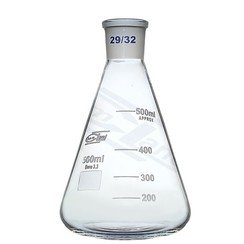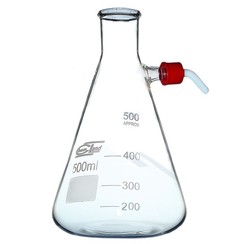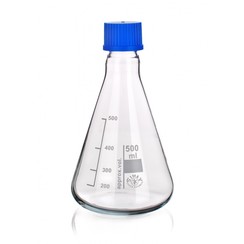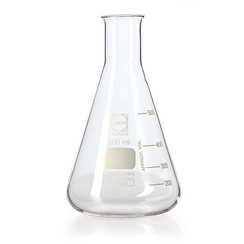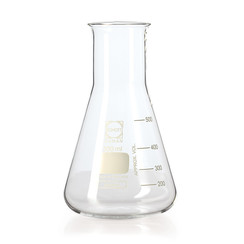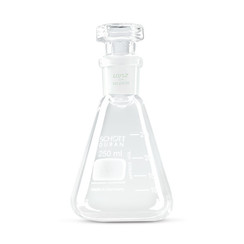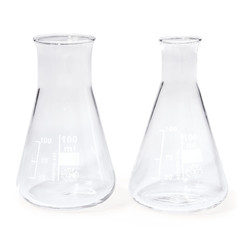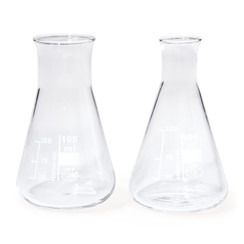You have no items in your shopping cart
Erlenmeyer flasks
An Erlenmeyer flask, also known as an Erlenmeyer flask or titration flask, commonly referred to as an Erlenmeyer or more informally Erlen, is a vessel commonly used in laboratory glassware.
It consists of a conical base and a cylindrical neck; There are different types of Erlenmeyer flasks, depending on the shape of this neck, the most common being the narrow-neck Erlenmeyer.
The Erlenmeyer flask owes its name to Emil Erlenmeyer, German chemist (1825-1909) who invented it in 1861.
laboratory use
The Erlenmeyer flask can be compared to the beaker, another container commonly used in the laboratory, from which it is distinguished by a narrowed neck:
the Erlenmeyer flask can be closed with a cork or plastic stopper, a steri stopper or even a plastic film to stir a mixture, preserve a solution or limit evaporation;
this shape also limits protrusions during a highly exothermic reaction or when a liquid is collected dropwise;
on the other hand, you cannot use the Erlenmeyer flask when you need to immerse multiple measuring instruments (thermometer, pH meter, conductimeter, etc.), so the beaker is preferable.
The flask is another laboratory vessel with a narrowed neck, but for stability reasons, the Erlenmeyer flask is preferably used when it needs to be placed on a flat surface, bench or hob, while the flask is almost reserved for situations requiring distributed heating. The Erlenmeyer flask, like the beaker, usually has a graduation to indicate approximately the volume of liquid it contains; however, these containers should not be used to measure a volume: a pipette, a burette, a volumetric flask or a graduated cylinder, depending on the volume to be measured and with the necessary precision.
You can buy these Erlenmeyer flasks at Laboratory discounter with a fast delivery for a friendly price.

